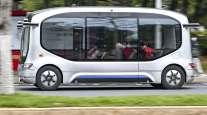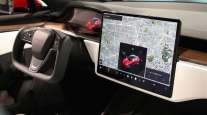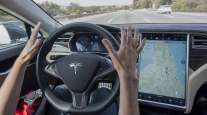London Not Ready for Driverless Cars Before 2030s, Report Says

London is ill-prepared to become an early adopter of cutting-edge transport technology including driverless cars and retail deliveries by drone, according to the city’s lawmakers.
While the U.K. government has predicted that connected and autonomous vehicles, or CAVs, will be on Britain’s roads by 2021, infrastructure and connectivity issues mean London is unlikely to see them until a decade later, the London Assembly’s transport committee said in a study released Feb. 13.
“There is much hype around CAVs becoming a feature of our roads in the imminent future,” according to the report. “This is not likely to be the case, with 2030 to 2040 more realistic for widespread rollout.”
RELATED: Coming soon to California: cars without a human behind the wheel
The level of congestion in London also means driverless cars would risk bringing the city to a standstill in the event of a very high takeup, it says, recommending that Mayor Sadiq Khan begin a sustained campaign to make car-sharing the norm before they’re introduced.
The report provides a generally bleak assessment of London’s readiness for a range of transport technologies:
• Autonomous buses may be preferable to driverless cars but would entail thousands of job losses as drivers are eliminated.
• Safety and performance issues mean delivery drones are unlikely to remove a significant amount of freight from roads; probably only suitable for “last mile” of delivery chain.
• Ground-based “droids” or delivery robots would lead to further crowding of sidewalks already obstructed by street furniture and parked vehicles.
• Uber Technologies Inc.’s troubled history in London, including legal challenges and contribution to congestion, shows risks of under-preparation for disruptive technologies.
• App-based dockless-bicycle program oBike had to withdraw from London after customers left its machines blocking walkways and streets. Concept has huge potential but will need licensing.
• Demand-responsive buses that can be hailed via an app and operate to constantly varying routes and timetables could fill gaps in network.




